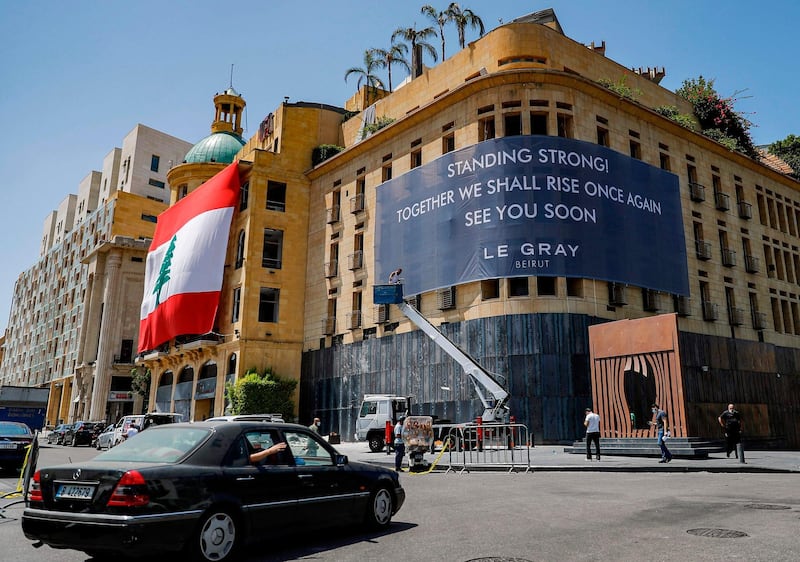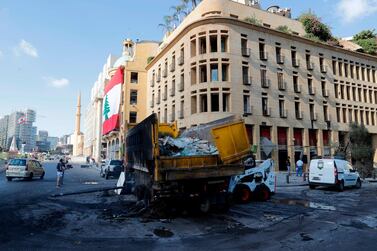The inflation rate in Lebanon soared in July as prices of food and clothing, along with other essentials, surged in the country that is facing its worst-ever economic and financial turmoil, according to official data.
Consumer prices rose an annual 112.4 per cent, compared with just under 90 per cent in June, the data released by the country’s Central Administration of Statistics showed.
Prices of food and non-alcoholic beverages in July jumped 336 per cent, while clothing and footwear were nearly 409 per cent more expensive compared to the same month last year.
“The collapse of Lebanon’s currency in the midst of the various crises ongoing in the country has pushed price growth to stratospheric levels,” Khatija Haque, head of research and chief economist at Emirates NBD, said.
The more-than three-fold rise in food prices will likely be further compounded by the huge explosion, which destroyed parts of Beirut this month, she said.
“Inflation will likely push higher still over the next several months,” Ms Haque added.
The prices of furnishings, household equipment and routine household maintenance items also increased 517 per cent in July, according to government data.
Lebanon is facing its worst economic crisis since its independence in 1943. It defaulted on eurobonds worth $31 billion (Dh113.8bn) in March, which led its currency, pegged to the US dollar since 1997, to lose more than 80 per cent of its value against the greenback in the black market.
An explosion in Beirut, which killed at least 180 people and injured more than 6,000 on August 4, is expected to further compound Lebanon’s economic woes. The Institute of International Finance projected that Lebanon’s economy will shrink 24 per cent this year, compared with an earlier forecast of 15 per cent as a result of the blast.
The country’s private sector economy also continued to contract in July on the back of weak demand and a sharp fall in output.
The BLOM Lebanon PMI index, that measures the strength of the private sector economy, rose to 44.9 in July, from 43.2 in June, pointing to another "marked deterioration in business conditions". A reading above the neutral 50 mark indicates economic expansion while one below points to a contraction.
“The Lebanese lira’s depreciation against the dollar, surge in inflation and lack of reforms are creating an uncertain environment for consumers and liquidity issues for producers,” Sarah Hadchiti, research analyst at Blominvest Bank, said on August 14.
The International Monetary Fund, which was in talks with the country for a $10bn bailout package, is working with Lebanon to resolve its economic crisis but has yet to make a breakthrough, managing director Kristalina Georgieva said this month.
In July, Moody's Investors Service downgraded Lebanon's issuer rating to C, its lowest grade, which is on par with Venezuela.







